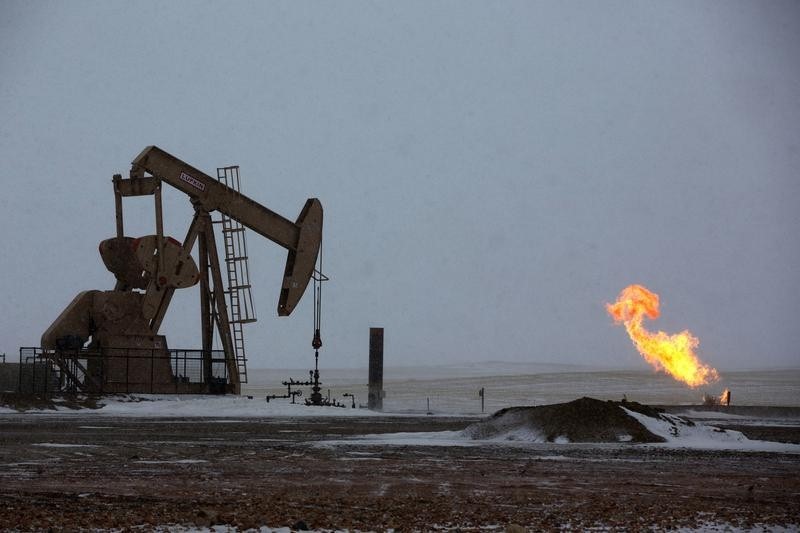By Ernest Scheyder
WILLISTON, N.D. (Reuters) - North Dakota's legislature will decide how to divvy up oil tax revenue among the state's 53 counties, and whether to wave sales taxes on materials used to build natural gas pipelines and chemical plants in a biennial session starting on Tuesday.
How to share lucrative tax revenue from booming oil production promises to be the most contentious part of the 80-day session, with politicians from the state's western oil producing counties clamoring for more money to build roads, schools and other infrastructure projects.
North Dakota is the second-largest U.S. oil producer and the fastest-growing economy in the nation, although many communities have struggled to provide public services for their growing populations.
A more than 50 percent drop in crude oil prices since June will also be a topic during the session. While only 3 percent of the state's operating budget comes from oil taxes, many one-time infrastructure projects, as well as a rainy day fund currently worth about $3 billion, are tied to the levies.
In a speech at the capitol last month, Governor Jack Dalrymple proposed a $1 billion increase in the portion of the oil production tax that western oil counties receive. If legislators approve the request, it would bump the amount to $1.7 billion.
"We all clapped when it was announced," said Vicky Steiner, a state representative and head of the North Dakota Association of Oil and Gas Producing Counties. "I think Dalrymple did a thorough job for the west."
However, Fargo, Grand Forks and other eastern cities holding most of the state's population have pushed to keep current funding models, which gives state officials in Bismarck allocation authority over most oil tax revenue.
The skirmish could be moot if oil prices drop too low. The state's 6.5 percent oil extraction tax gets waived if prices fall below a trigger of $52.59 per barrel at the Cushing, Oklahoma, hub for five consecutive months.
Dalrymple's proposed budget, which must be approved by a majority of the 141 legislators, is based on oil prices of $74 to $78 per barrel for the first year of the session and $79 to $82 per barrel for the second. That is far above the current price for U.S. crude of around $51 per barrel.
In an interview with Reuters last month, Dalrymple said he based his price projections on data from Moody's Corp, and he expects an updated forecast in February, in the middle of the legislative session.
Should the projection be cut, it could dramatically alter final deliberations on the 279 bills under consideration.
The bill aimed at curbing sales taxes for natural gas pipelines comes as the state enforces tough standards to curb flaring, the wasteful burning of gas. The bill's sponsors hope the proposed law would further encourage companies to build pipe networks, the best way to prevent flaring.
A waiver on sales taxes for materials used to build fertilizer plants would be a boon for CHS Inc, which announced plans last September to build a $3 billion nitrogen plant in the state.
Legislators also will consider bills that would reduce, but not eliminate, the state's income tax rate to zero.

Legislators receive $1,500 per month for housing in the state capital of Bismarck during the session of the legislature held every other year.
(Reporting by Ernest Scheyder; Editing by Terry Wade and Andre Grenon)